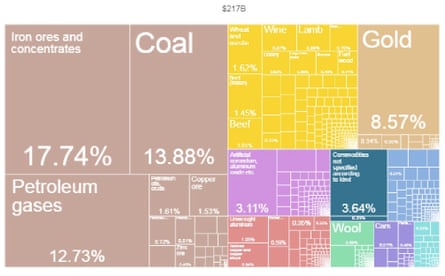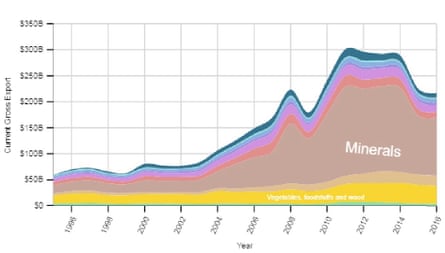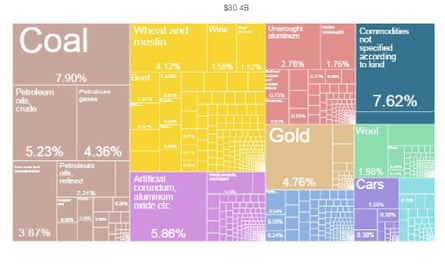Is Australia’s economy diverse enough?
Dr Andrew Leigh, the shadow assistant treasurer, believes policymakers need to think deeply about the economy’s level of complexity.
In a speech to the Insurance Council of Australia, Leigh will warn on Wednesday that despite the reforms of the 1980s and 1990s, the complexity of the products Australia exports has become “simpler” in recent decades when compared with products exported by other advanced economies.
He will say economic complexity is a good predictor of a country’s level of income and future economic growth, and Australia is now ranking “badly” compared with its peers.
He will also say if the Turnbull government doesn’t secure an exemption for Australia from Donald Trump’s proposed new steel and aluminium tariffs, it will make Australia a less complex economy, too.
“We need to encourage a wider variety of export industries.”
Leigh will say the economic principle of comparative advantage tells us the world can become richer when countries specialise in what they produce best, before then engaging in global trade.
But too much specialisation can create excess risk, he says. “If your national prosperity strategy relies on exporting sugar, you’re going to be at risk when diet soft drinks take over.”
Leigh will say a useful way of thinking about a country’s degree of specialisation is the Harvard Atlas of Complexity, which was developed a decade ago by a team led by Ricardo Hausmann.
The atlas starts with the idea that some products are more complex than others. To make medical imaging devices or jet engines takes plenty of knowledge and extensive networks of people. To make wood logs or coffee beans requires less knowledge and smaller networks.
It shows the world’s most complex economies are Japan, Switzerland and Germany, and the three least complex economies are Cameroon, Guinea and Nigeria.
How does Australia fare on the Economic Complexity Index? In a word, badly.
“Out of 122 economies that the experts have assessed, we come 65th , just below halfway,” Leigh will say. “For a nation that consistently ranks among the top 20 for our income per person, this is an astonishingly poor performance.”

Leigh will say it isn’t just that Australia exports relatively few products; it’s that the products we export tend to be exported by undiversified countries.
And Australia’s lack of complexity is not simply a response to the mining boom – it turns out that even before the boom, our exports weren’t particularly complex.

“Over the longer run, Hausmann and his colleagues estimate that Australia’s economic complexity ranking stayed pretty constant from the mid-1960s to the late-1970s, then fell markedly over the past generation,” Leigh will say.
“On their measures, we have never been an especially complex economy. But we’ve gotten a lot ‘simpler’ in recent years.”

Leigh admits there are limitations to the atlas methodology. He will say services exports are excluded, which means higher education, tourism, financial services and legal services exports are not counted.
And the Hausmann approach looks only at trade, so a nation could in theory have a complex and diversified domestic market, but sell only simple products to the rest of the world.
“But just as the proof of the pudding is in the eating, the proof of any growth theory
is how it predicts growth,” he will say. “And anyone who wants to airily dismiss the Atlas of Complexity needs to explain the fact that it has a pretty good track record of forecasting past economic growth across nations.”
